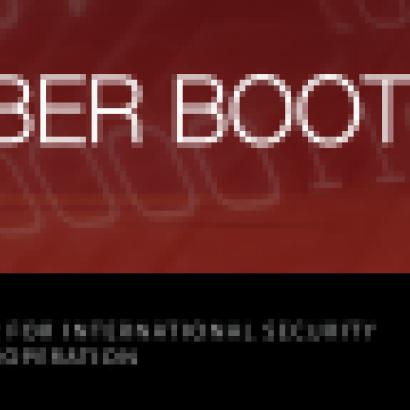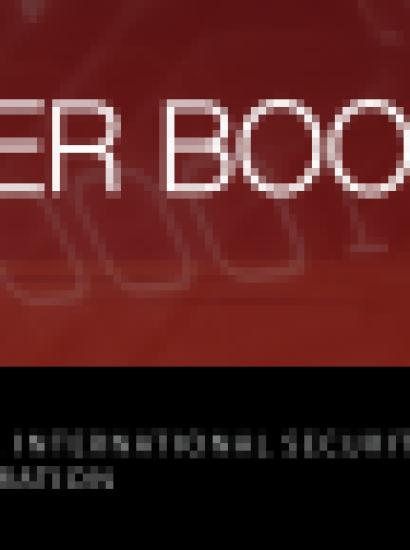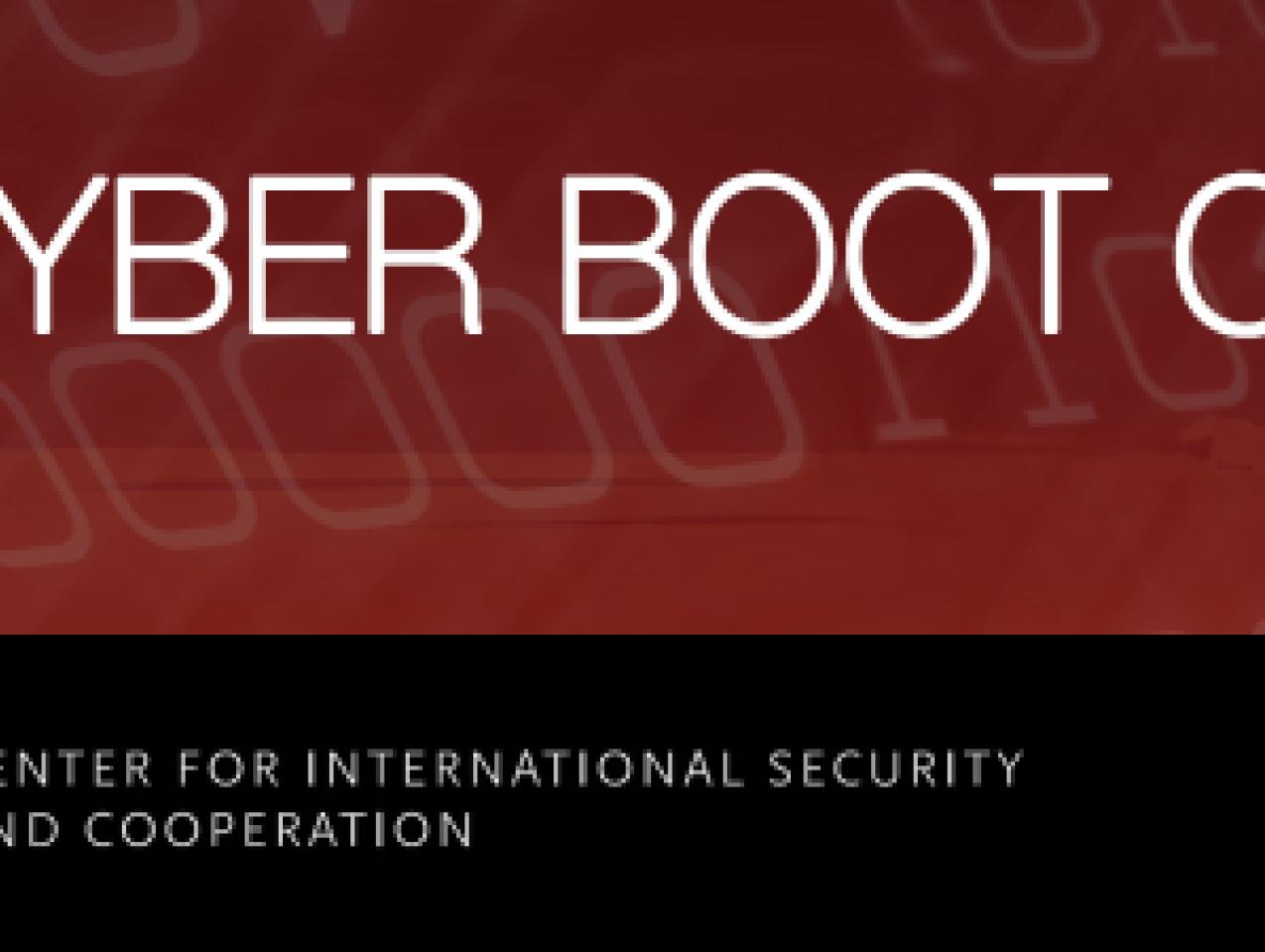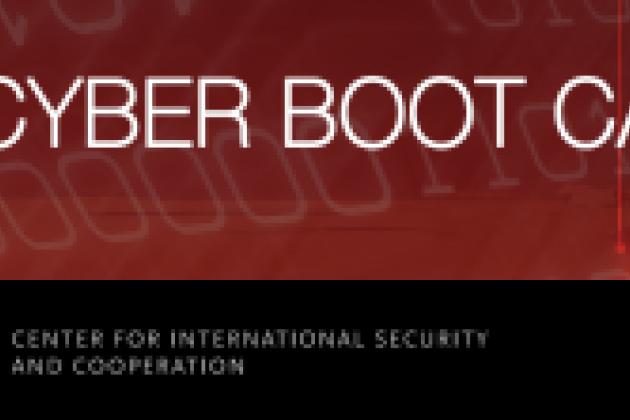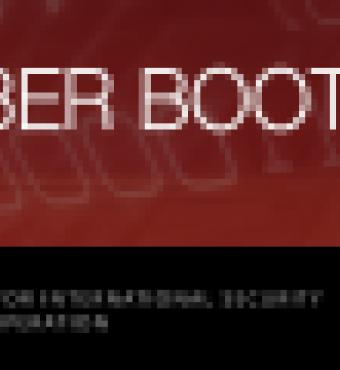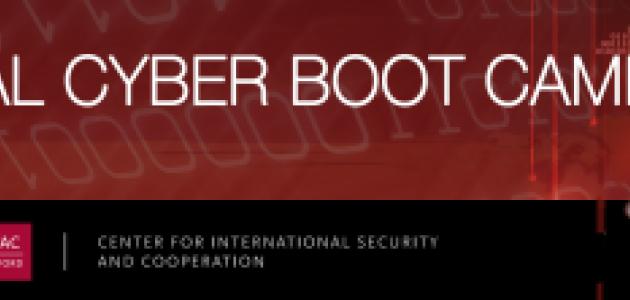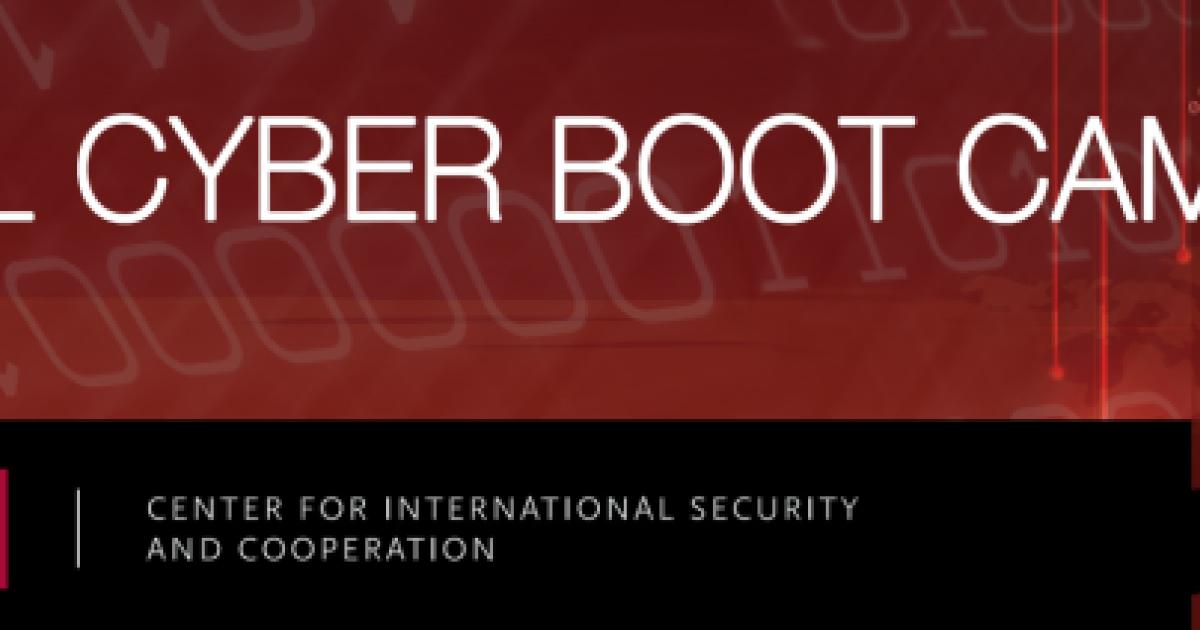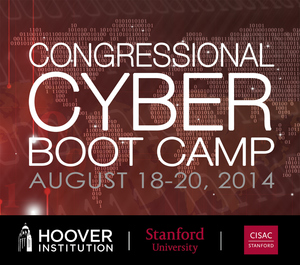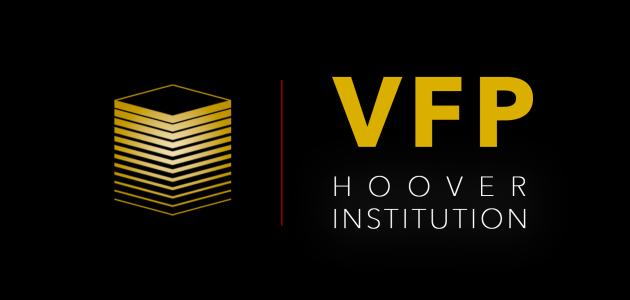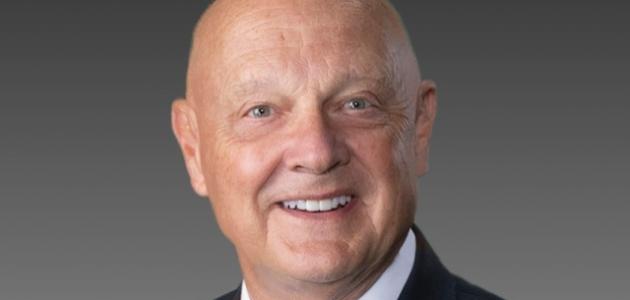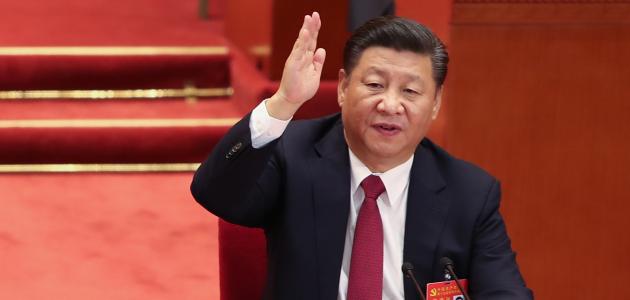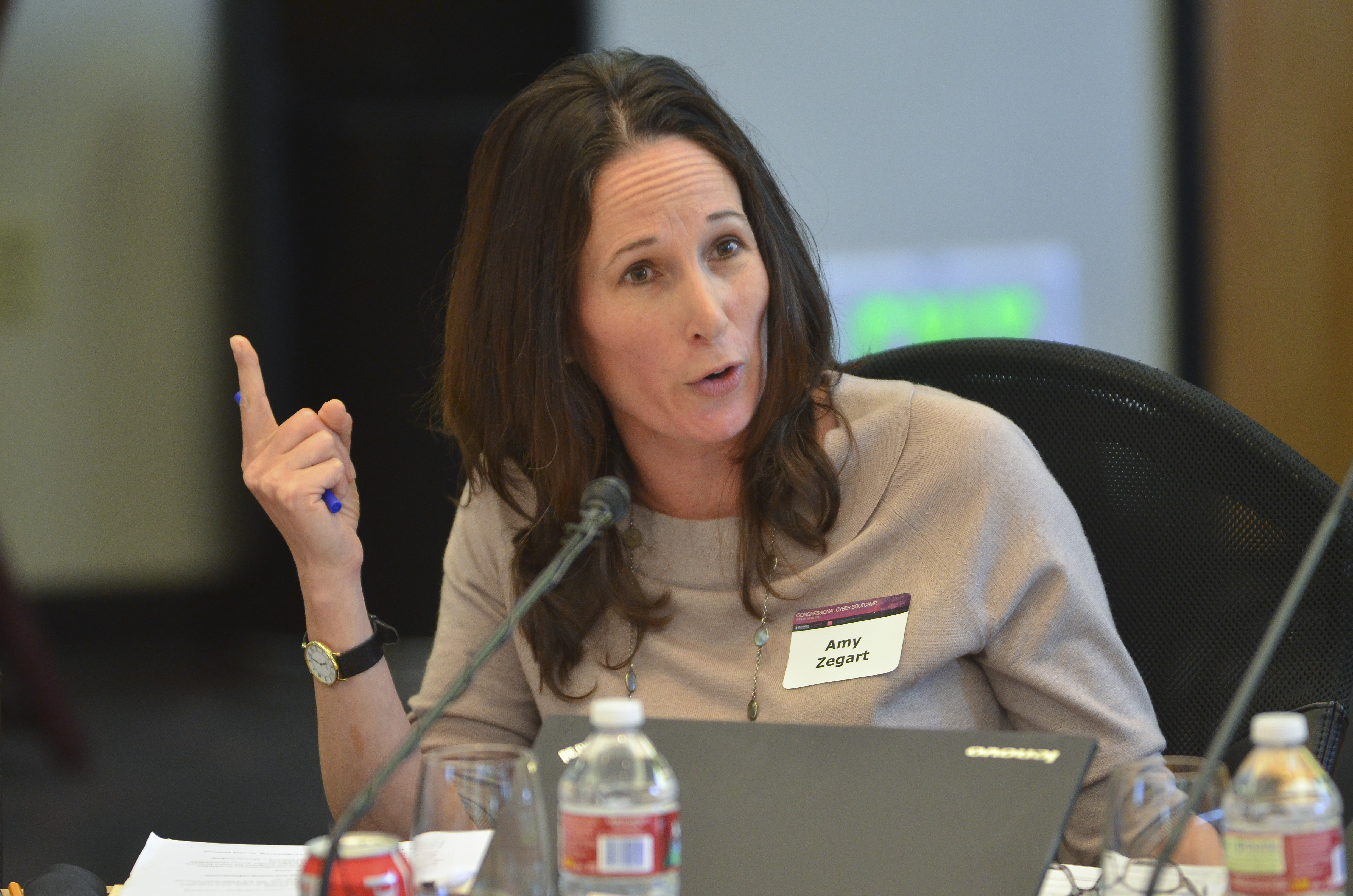
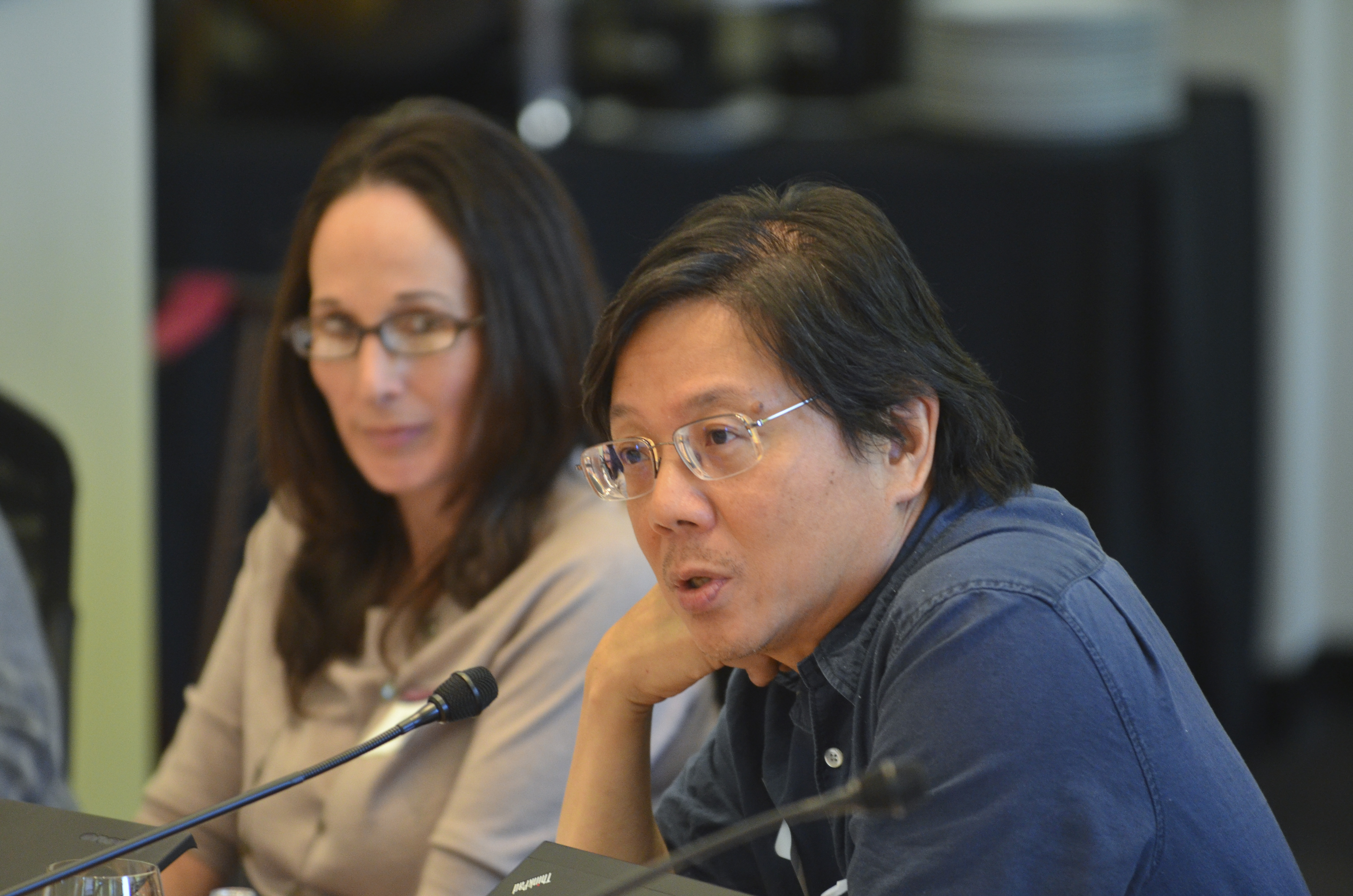
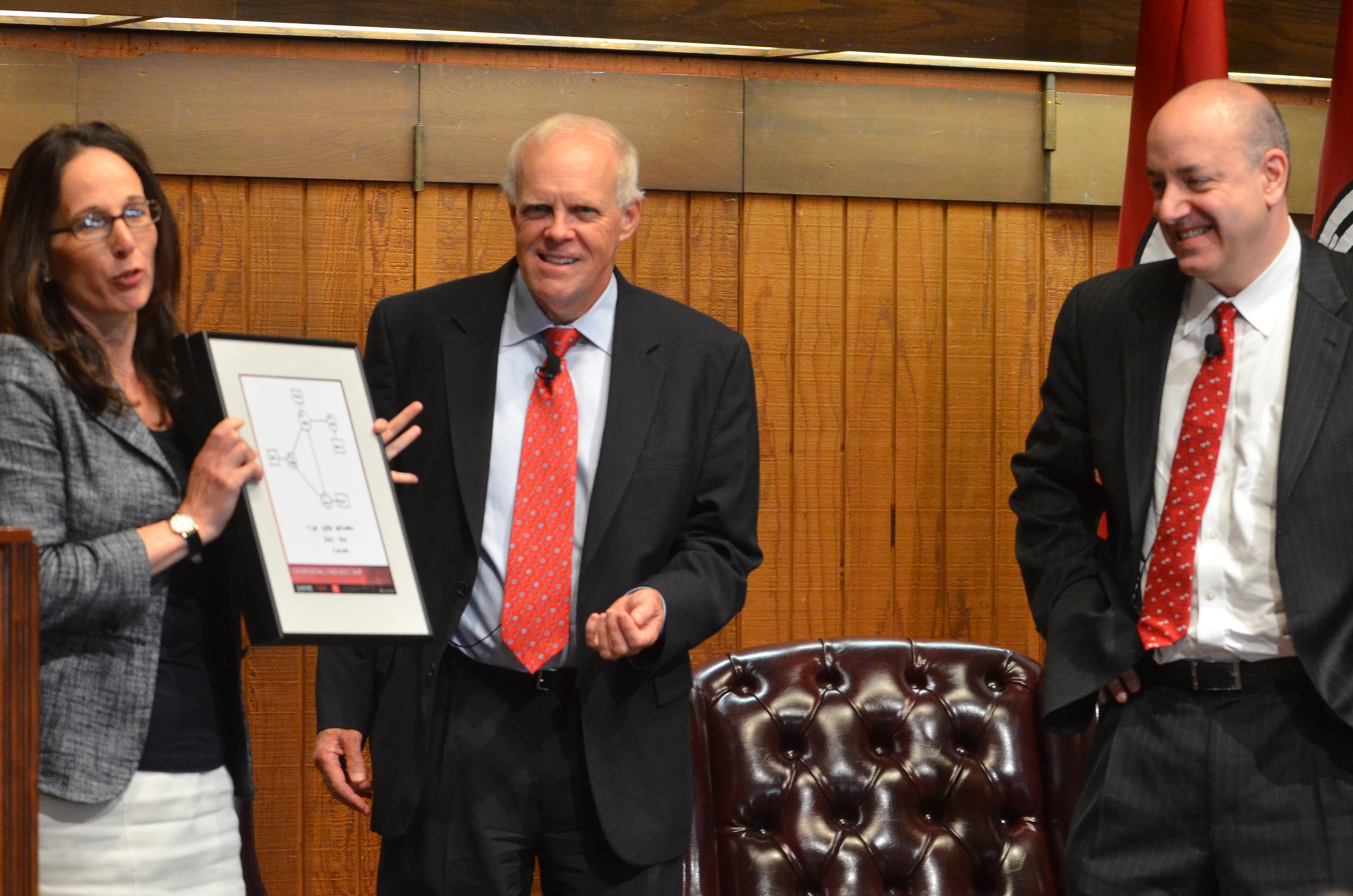
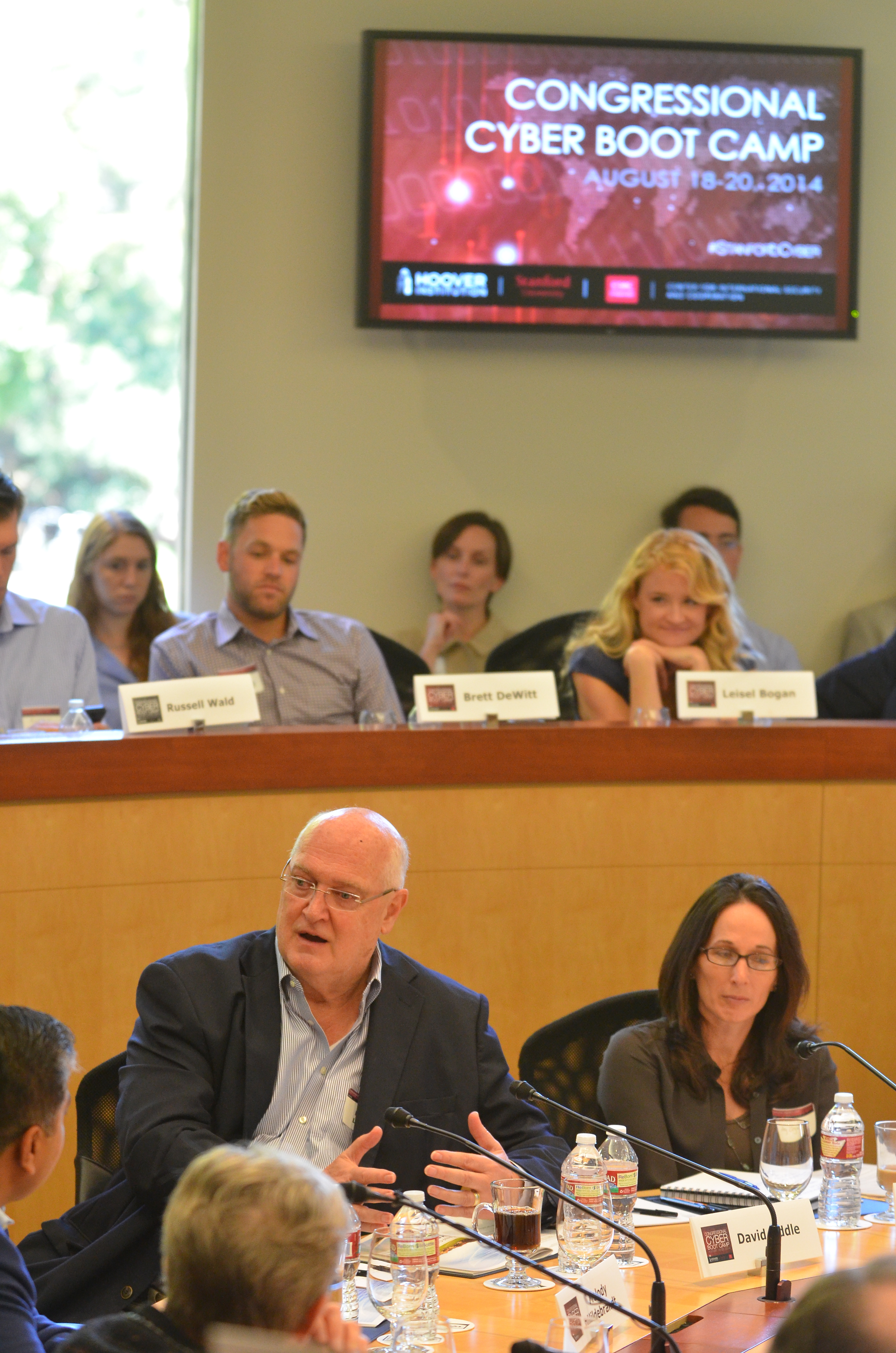
Two dozen senior US Senate and House staffers are visiting the Hoover Institution for the inaugural Congressional Cyber Boot Camp, an intensive three-day cybersecurity workshop organized by Amy Zegart, the Davies Family Senior Fellow at the Hoover Institution and codirector of Stanford’s Center for International Security and Cooperation (CISAC), and Herbert Lin, a consulting scholar at CISAC who will be a visiting fellow at Hoover this starting Winter. The event, cosponsored by Hoover and CISAC, has attendees from both political parties.
The program aims to examine cybersecurity and its corresponding threats holistically, presenting multidisciplinary presentations from a wide range of fields, including computer science, economics, and psychology. Speakers include Condoleezza Rice, former secretary of state and the Thomas and Barbara Stephenson Senior Fellow at Hoover, and Eric Schmidt, the executive chairman of Google, giving a keynote address; Stanford president John Hennessy and former dean of Stanford Law Larry Kramer, discussing cybersecurity at the university; and a panel chaired by Raj Shah of Palo Alto Networks featuring Scott Charney of Microsoft, Melody Hildebrandt of Palantir, David Liddle of US Venture Partners, and Ellen Richey of Visa discussing the issues from a corporate perspective. The workshop activities included a hands-on simulation of a cybercrisis and a visit to Google headquarters.
In addition to providing data and materials on technology and security for the congressional staffers to bring back to Washington, the workshop hopes to facilitate informational networking among staffers, scholars, and industry leaders. Zegart and Lin hope that those relationships will improve policy making and future research on the topic.
"While there is great consensus on the importance of cyberspace from the standpoint of international security, there is surprisingly little consensus on appropriate strategy, doctrine, tactics, theory, or data that might be brought to bear to understand the relevant issues," write Zegart and Lin in their welcome letter. "These gaps and questions provide an opportunity for CISAC, Hoover, and Stanford more broadly to play an early and significant role in though leadership and cross-sector convening."
Although most of the workshop is closed to the public, you can follow the conversation on Twitter at #StanfordCyber, with Stanford, Hoover, and CISAC reporting.
For more information about the conference, see the event page on Hoover’s website, where you can download the event program for a complete list of speakers and their bios; see the program overview on CISAC’s website; and see the news coverage of the first day and second day from Stanford News.








